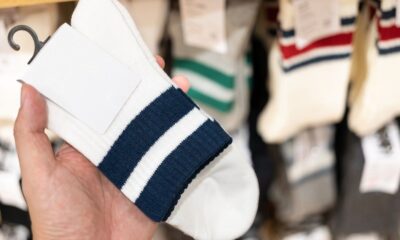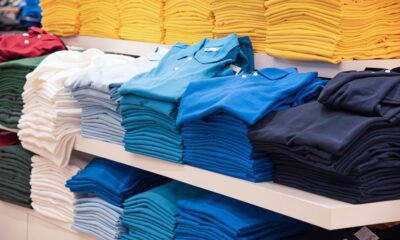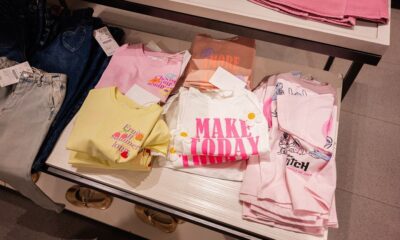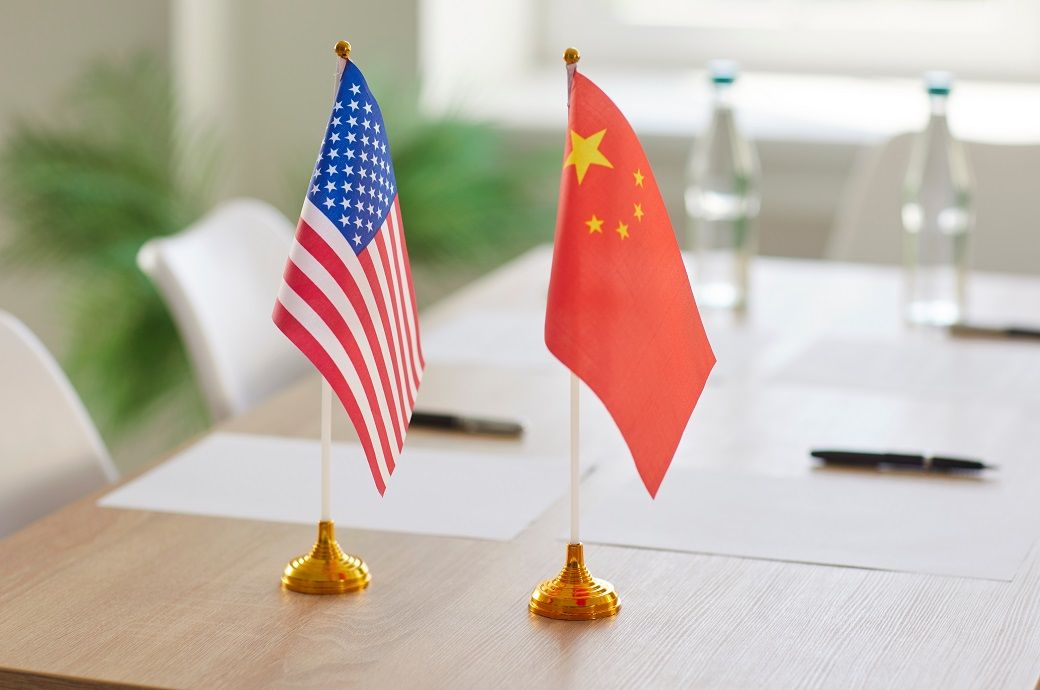Fashion
Estée Lauder opens innovative Fragrance Atelier within its new La Maison des Parfums in Paris
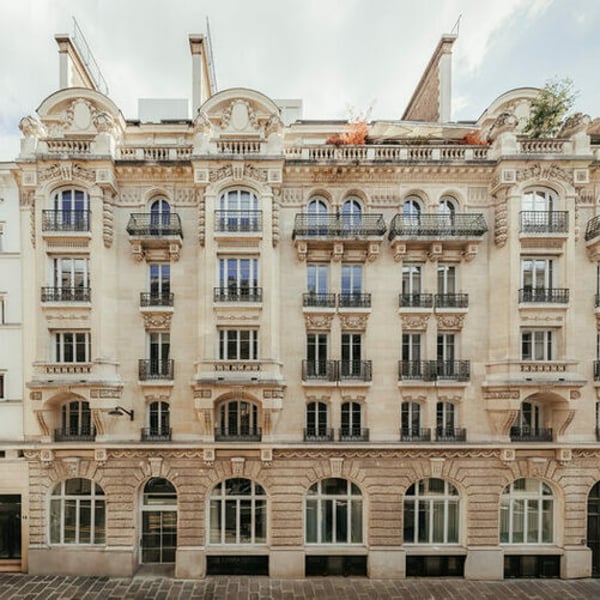
Published
October 14, 2025
The Estée Lauder Companies Inc., under the high patronage of French president Emmanuel Macron, announced the opening of its Fragrance Atelier within its new La Maison des Parfums on Rue Volney in Paris on October 14. This global innovation hub is designed to accelerate the business’ strategic ambitions in luxury and prestige fragrances.
“It is with great pride and excitement that we open our Fragrance Atelier in Paris,” said The Estée Lauder Companies’ president and CEO Stéphane de La Faverie in a press release. “Building on our incredible heritage of creativity and innovation, the Atelier will propel our future growth in this dynamic category- uniting world-class expertise, cutting-edge technology, and the artistry of fragrance to accelerate innovation across our portfolio. Located in the cradle of perfumery, our teams will blend state-of-the-art technology, data-driven intelligence, and olfactive expertise to craft the next generation of extraordinary scents for our consumers worldwide.”
The Estée Lauder Companies stated that the opening of the Atelier marks a significant milestone in its long-term commitment to the fragrance industry and honours its eponymous founder’s lifelong passion for perfumes. Designed to fuse creativity with science and technology, the Atelier’s AI-enabled, end-to-end creation process will harness olfactive and neuroscience modelling to develop new technologies and reduce fragrance development lead times by up to 30% to 50% over the coming years.
The new La Maison des Parfums is located in the heart of the French capital, measures an expansive 2,000 square metres, and is spread across five storeys. The immersive environment will serve as a shared innovation engine for all of the business’ fragrance labels, which include Jo Malone London, Le Labo, Tom Ford, and Kilian Paris.
Innovation spaces include a ‘Music Room’ and laboratories where experts will undertake processes including CO? supercritical extraction and GCMS molecule analysis. The Atelier will also employ neuroscience-based consumer modelling to turn sensory data into insight to help its creators develop truly emotive fragrances.
“We are extremely proud that The Estée Lauder Companies has chosen France as the location for its new Fragrance Atelier,” said French ambassador for international investments and chairman of the Board of Business France Pascal Cagni. “Their choice demonstrates the confidence that international leaders have in French excellence, which is driven by a unique ecosystem of creative talent, innovation, and globally recognised expertise. The French perfume and cosmetics industry, with more than 30 billion euros in revenue, is a key driver of growth and attractiveness.”
The Estée Lauder Companies’ global research and innovation network also spans the US, China, Europe, and Canada with region-specific facilities that promote discovery across the business’ operations. The Estée Lauder Companies employs over 1,200 individuals in France and a number of its brands, including Darphin Paris and Lab Series, are headquartered in the country. The Fragrance Atelier thus deepens the business’ commitment to both France and the fragrance industry.
Copyright © 2025 FashionNetwork.com All rights reserved.
Fashion
USITC launches study on ending China PNTR
Fashion
Germany’s Puma’s FY25 sales slide on wholesale reduction
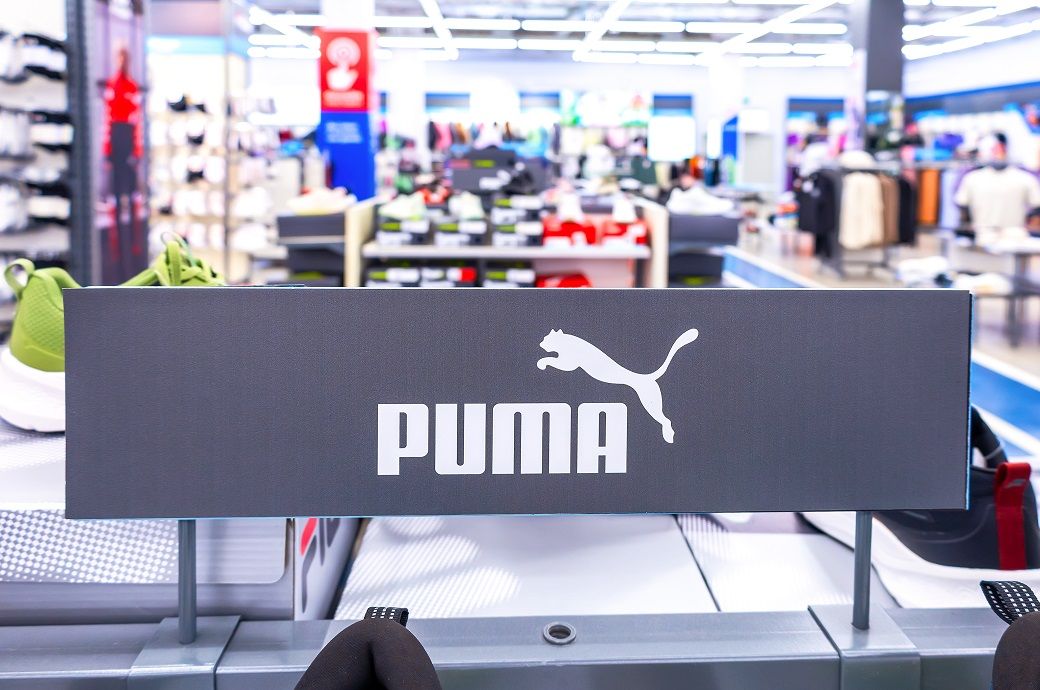
Wholesale revenue dropped 12.8 per cent on a currency-adjusted basis to €4.9 billion, while direct-to-consumer (DTC) sales increased 3.4 per cent, lifting the DTC share to 32.4 per cent from 28.9 per cent.
Regionally, sales fell 6.9 per cent in Europe, Middle East and Africa (EMEA), 7.4 per cent in Asia-Pacific and 10 per cent in the Americas, with North America driving much of the decline.
Puma has reported sales of €7.3 billion (~$8.61 billion) in FY25, with currency-adjusted revenue down 8.1 per cent amid strategic reset actions.
Wholesale declined while DTC share increased.
Margins contracted and EBIT turned negative, leading to a net loss.
Q4 saw sharper declines across regions and categories.
Puma expects further sales softness and negative EBIT in FY26.
By product segment, footwear sales decreased 7.1 per cent, apparel declined 9.7 per cent and accessories fell 8.5 per cent, although selective growth was observed in running, training and premium sport style lines, Puma said in a press release.
Profitability weakened significantly during the year. Gross margin contracted 260 basis points to 45.0 per cent, impacted by promotional activity, inventory reserves, unfavourable mix and currency effects. Adjusted EBIT turned negative at €165.6 million, while reported EBIT declined to -€357.2 million after €191.6 million in one-off costs related mainly to the cost efficiency programme and goodwill impairments.
Loss from continuing operations widened to -€643.6 million, translating to earnings per share of -€4.37 versus €1.88 in the prior year.
From a balance sheet perspective, inventories rose 2.3 per cent to €2.06 billion as inventory takebacks from wholesale partners supported distribution clean-up. Working capital increased 20.2 per cent, while trade receivables and payables declined sharply in line with reduced sales and purchasing activity. Puma ended the year with additional financing capacity, including €1,202.2 million in unutilised credit lines.
Fourth quarter (Q4) performance reflected the peak impact of the strategic reset. Currency-adjusted sales declined 20.7 per cent to €1,564.9 million, with reported revenue down 27.2 per cent due to currency headwinds. The decline was driven by deliberate reductions in wholesale exposure, inventory clearance actions and lower promotional intensity.
Wholesale sales fell 27.7 per cent in Q4, while DTC revenue decreased 8.0 per cent, although DTC share increased to 41.1 per cent from 35.5 per cent. Regionally, sales dropped 12.6 per cent in Asia-Pacific, 22.2 per cent in the Americas and 24.3 per cent in EMEA.
Across product divisions, footwear sales declined 25.4 per cent, apparel fell 13.7 per cent and accessories dropped 18.2 per cent, with selective resilience in training and performance running categories.
Profitability deteriorated sharply. Gross margin declined to 40.2 per cent from 47.7 per cent due to promotions, inventory provisions and currency effects. Adjusted EBIT fell to -€228.8 million, while reported EBIT reached -€307.7 million following one-off costs linked to restructuring and impairment charges. The quarter ended with a loss from continuing operations of -€335 million.
Arthur Hoeld, CEO of Puma, said: “2025 was a reset year for us. We want to establish Puma as a top 3 sports brand globally, return to above-industry growth and generate healthy profits in the medium term. It is crucial to make the Puma brand less commercial and ensure we once again excite our consumers with attractive products, compelling storytelling and distribution in the right channels. I am satisfied with the progress we have made so far. We cleaned up most of our distribution by reducing promotions in our own channels and cutting our exposure to those wholesale channels that damage our brand’s desirability. To better position our product icons and our performance offering and tell more engaging product stories, we created the right structures inside our company. We also addressed operational inefficiencies and further optimised our cost base.”
Looking ahead, Puma expects currency-adjusted sales in fiscal 2026 to decline in the low- to mid-single-digit percentage range, with EBIT projected between -€50 million and -€150 million. Capital expenditure of around €200 million is planned as the company continues investments in brand repositioning and digital capabilities, added the release.
Fibre2Fashion News Desk (SG)
Fashion
India’s real GDP estimated to grow 7.6% in FY26 under new base FY23
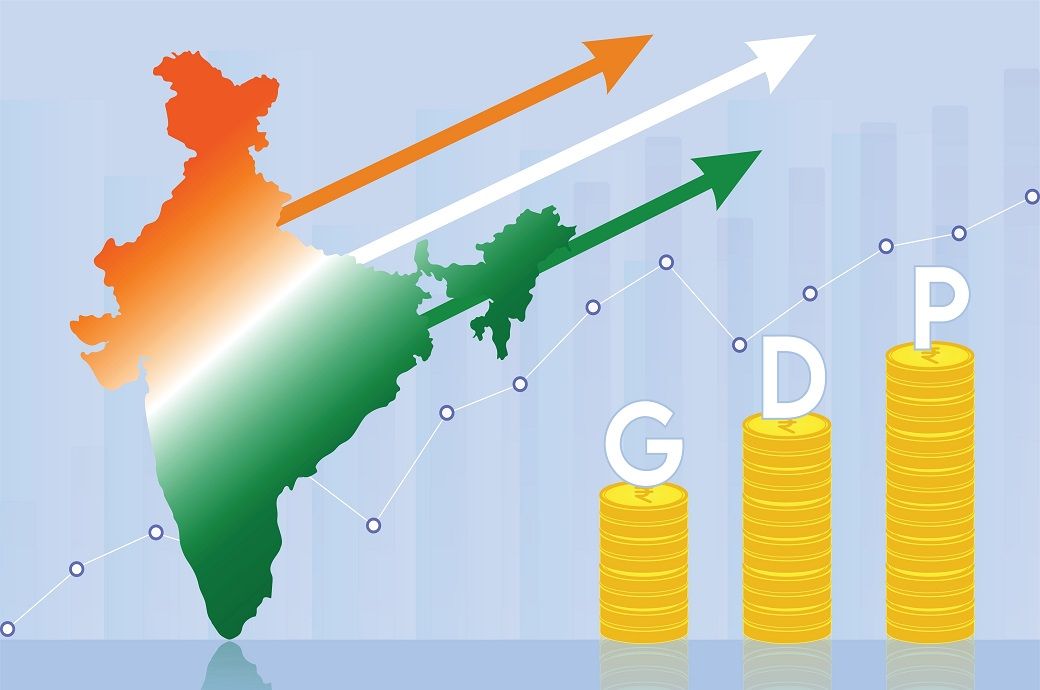
Nominal GDP, or GDP at current prices, is estimated to grow at 8.6 per cent to reach ₹345.47 trillion in FY26 against ₹318.07 trillion in 2024-25.
India’s real GDP is estimated to grow at 7.6 per cent to ₹322.58 trillion (~$3.54 billion) in FY26 compared to the first revised GDP estimate of ₹299.89 trillion for FY25 (7.1 per cent growth).
It released the new series of annual and quarterly national accounts estimates with FY23 base.
Real GVA is projected to grow at 7.7 per cent to reach ₹294.40 trillion in FY26 against ₹273.36 trillion in FY25.
Real gross value added (GVA) is projected to grow at 7.7 per cent to reach ₹294.40 trillion in FY26 against ₹273.36 trillion in FY25 (a 7.3-per cent growth rate).
Nominal GVA is estimated to grow at 8.7 per cent to hit ₹313.61 trillion during FY26, against ₹288.54 lakh crore in 2024-25.
Robust economic performance in FY26 is primarily on account of robust real growth observed in the second quarter (8.4 per cent) and third quarter (7.8 per cent).
The manufacturing sector has been the major driver of resilient performance of the economy the consecutive three fiscals after rebasing, a release from the ministry said.
Both private final consumption expenditure and grossed fixed capital formation exhibited more than 7-per cent growth rate in FY26.
Fibre2Fashion News Desk (DS)
-

 Business1 week ago
Business1 week agoEye-popping rise in one year: Betting on just gold and silver for long-term wealth creation? Think again! – The Times of India
-

 Politics1 week ago
Politics1 week agoPakistan carries out precision strikes on seven militant hideouts in Afghanistan
-

 Sports1 week ago
Sports1 week agoKansas’ Darryn Peterson misses most of 2nd half with cramping
-

 Tech1 week ago
Tech1 week agoThese Cheap Noise-Cancelling Sony Headphones Are Even Cheaper Right Now
-

 Business1 week ago
Business1 week agoEquinox chairman says ‘health is the new luxury’ as wellness spending soars
-

 Sports1 week ago
Sports1 week agoHow James Milner broke Premier League’s appearances record
-

 Tech1 week ago
Tech1 week agoThe Supreme Court’s Tariff Ruling Won’t Bring Car Prices Back to Earth
-

 Entertainment1 week ago
Entertainment1 week agoViral monkey Punch makes IKEA toy global sensation: Here’s what it costs


